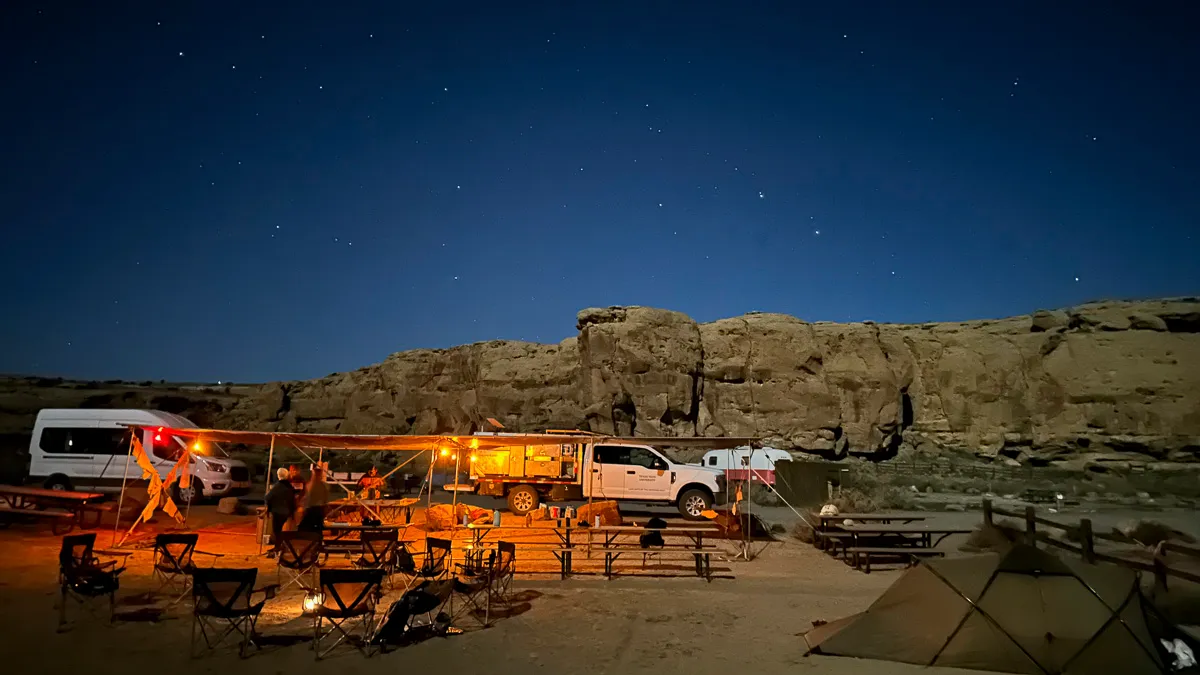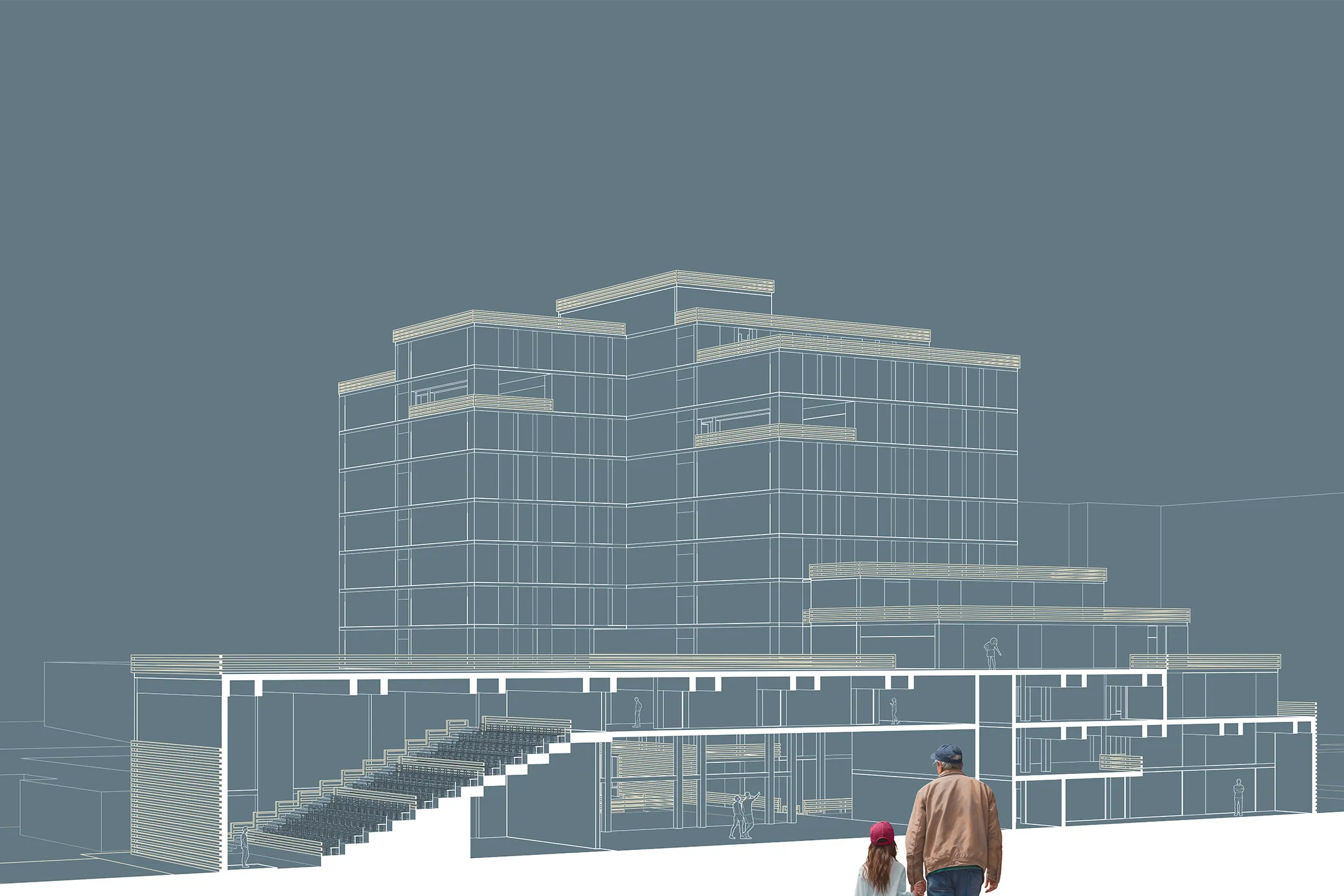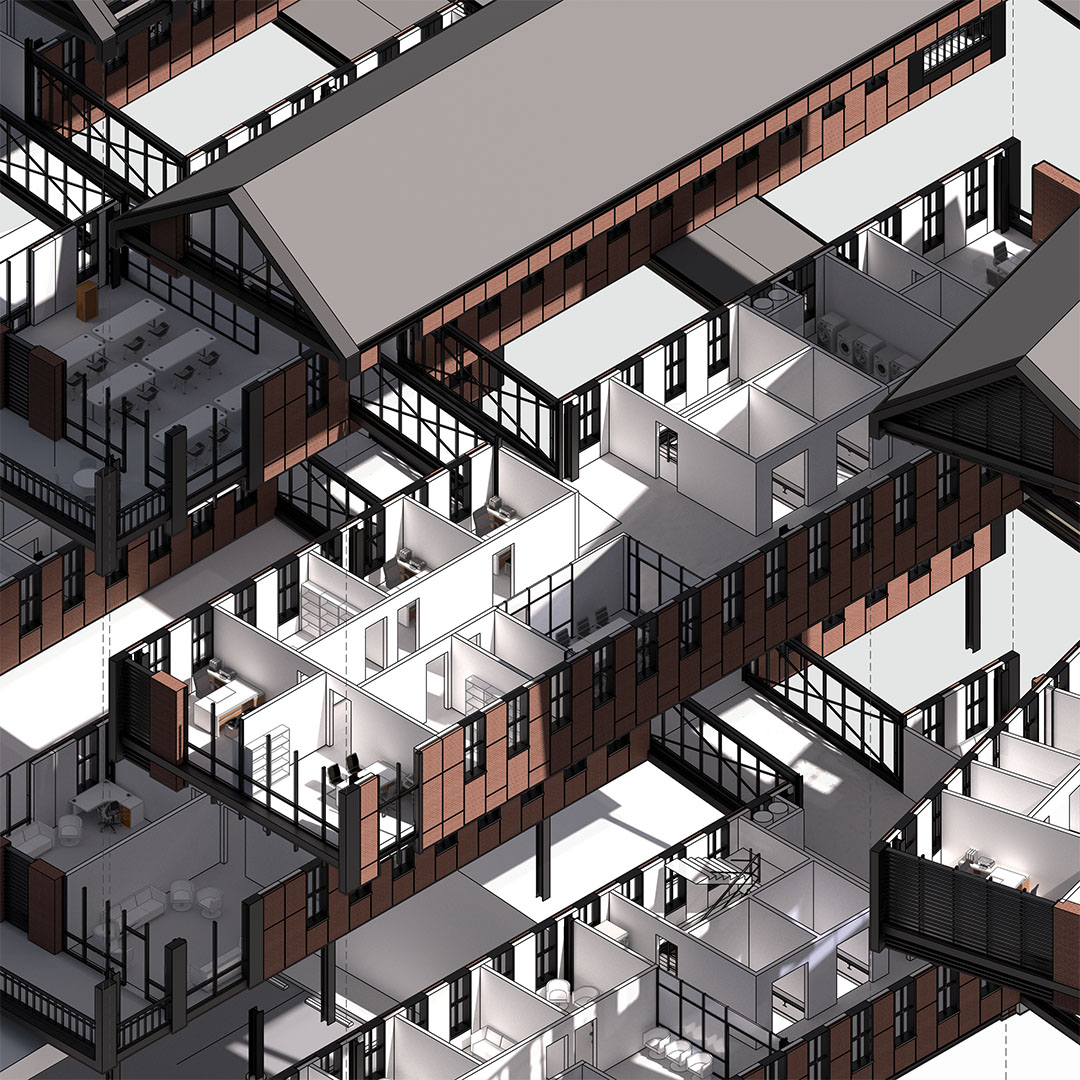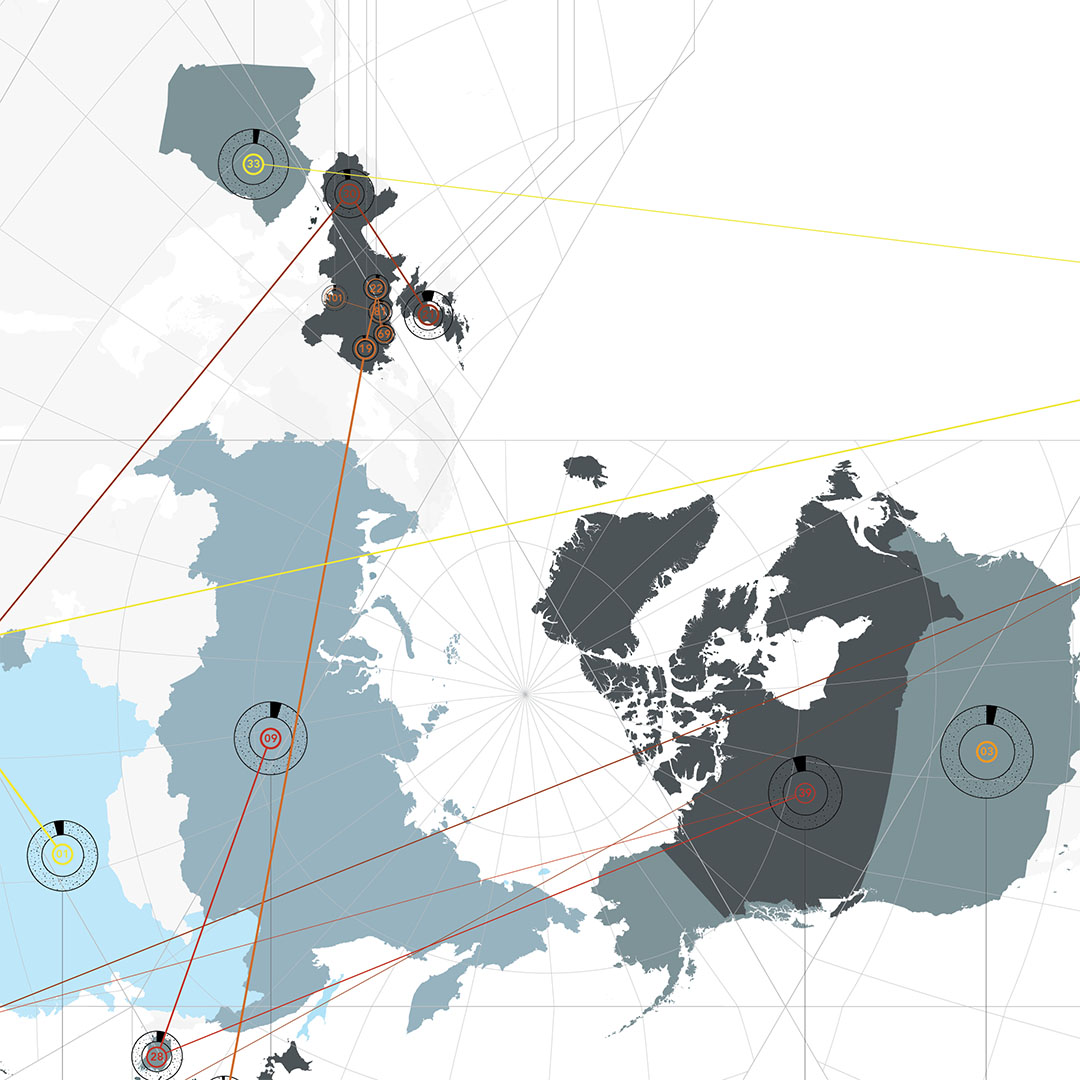Design, Computation, and Fabrication
This 12–15-hour certificate seeks and offers advanced design knowledge and innovative
approaches in architectural design. Positioned at the intersection among architecture,
engineering, and construction, students gain practical skill sets and theoretical
foundations in computational design, material study, fabrication techniques, and processes.
Coursework centers on technical skills and the theoretical & conceptual foundations
to rethink and challenge the limits of current design practice.
Recommended Curriculum

Ecological and Sustainable Design
The Ecological and Sustainable Design (ESD) Graduate Certificate is tailored towards
forward-thinking students eager to address the complex and wicked problems of climate
change, social justice, and adaptation for innovative design in architecture.
Through a carefully curated selection of elective and studio courses, explore current
issues such as regenerative and carbon-neutral materials, ecologically-minded technologies
and integration, and energy-efficient design. With 15 credit hours of targeted ESD-approved
coursework, you will gain invaluable knowledge and practical skills to advance ecological
and environmental systems through architecture.
Join us and shape the future while making meaningful contributions to sustainable
design and advancing your career at the intersection of ecology, equity, and innovation.

Health Care Facilities Design
This 12-hour interdisciplinary certificate offers specialty coursework in Healthcare
Facilities Design, exploring how research can be used to design a space that positively
affects patient outcomes and the efficiency and safety of healthcare environments.
With this certificate, in addition to taking architecture courses in advanced design
and evidence-based architecture, students enroll in nursing and business courses through
the School of Nursing at TTUHSC and the Rawls College of Business, which provide a
deeper understanding of the role technology plays in patient care and existing operational
systems in modern healthcare.
Recommended Curriculum

Health & Wellness Design
For this 15-hour certificate, the HCOA partnered with the Department of Public Health
at TTUHSC to create a program that examines salutogenic design principles, teaching
students how environmental design enhances the physical, intellectual, emotional,
mental and spiritual health of groups and individuals.
Coursework will explore the ways in which design impacts health, public health principles,
evidence-based design principles, research methods, and the role of research in design.
Recommended Curriculum

Land Arts of the American West
This 12-hour certificate expands the definition of land art through direct experience
with the full range of human intervention in the landscape, from the inscriptions
of pictographs and petroglyphs to the construction of roads, dwellings, and monuments
(and the remnants of those developments).
A semester-long, transdisciplinary field program, Land Arts investigates the intersection
of geomorphology and human construction, beginning first with the land and extending
through the complex social and ecological processes that create contemporary landscapes.
Recommended Curriculum

Urban & Community Design
This 15-hour certificate provides students with in-depth knowledge of the integrated
relationship between architecture and the urban environment. Coursework centers on
the design of physical spaces and the legal framework between interrelated neighborhoods.
Interdisciplinary studies also provide students with opportunities to examine real
estate, finance, mapping, and spatial analysis, and/or the dynamics of U.S. energy,
climate, and sustainability law policy as they concern urban environments.
Recommended Curriculum





